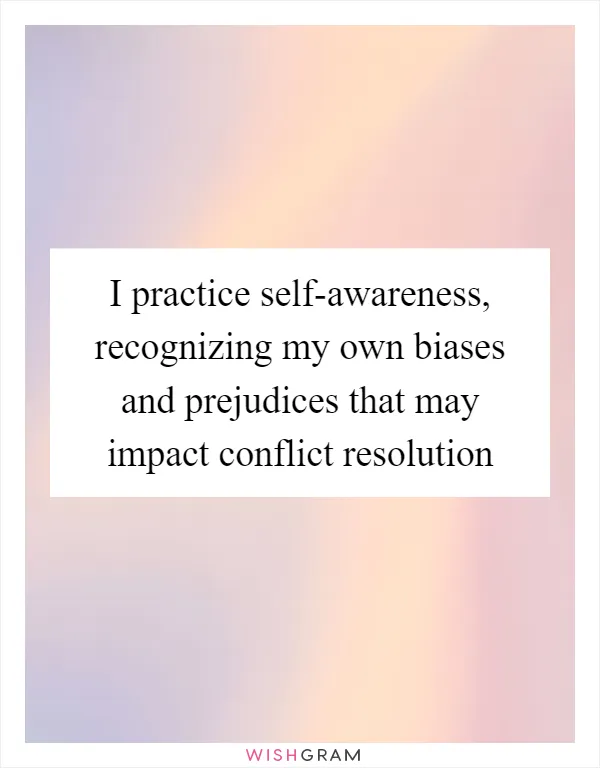I practice self-awareness, recognizing my own biases and prejudices that may impact conflict resolution
The affirmation "I practice self-awareness, recognizing my own biases and prejudices that may impact conflict resolution" can help you become a better communicator and problem solver. Self-awareness is the ability to recognize your own thoughts, feelings, and behaviors, and how they affect others. It is an essential skill for conflict resolution because it allows you to understand your own biases and prejudices, which can impact your ability to resolve conflicts effectively.
When you practice self-awareness, you become more mindful of your own thoughts and feelings. You start to notice when you are feeling angry, frustrated, or defensive, and you can take steps to manage those emotions. This can help you stay calm and focused during a conflict, which can make it easier to find a resolution.
Self-awareness also helps you recognize your own biases and prejudices. We all have biases and prejudices, whether we realize it or not. These biases can be based on our race, gender, religion, or other factors. When you are aware of your own biases, you can take steps to overcome them. This can help you be more open-minded and empathetic during a conflict, which can lead to a more positive outcome.
Recognizing your own biases and prejudices can be difficult, but it is an important step in becoming a better communicator and problem solver. It requires you to be honest with yourself and to take responsibility for your own actions. It also requires you to be open to feedback from others, which can be challenging but ultimately rewarding.
One way to practice self-awareness is to reflect on your own experiences and beliefs. Think about times when you have been in a conflict and how you reacted. Were you able to stay calm and focused, or did you become defensive or angry? What were the underlying emotions that drove your behavior? Were there any biases or prejudices that influenced your actions?
Another way to practice self-awareness is to seek feedback from others. Ask friends, family members, or colleagues for their honest opinions about your behavior. Listen to their feedback without becoming defensive or dismissive. Use their feedback to identify areas where you can improve your communication and conflict resolution skills.
